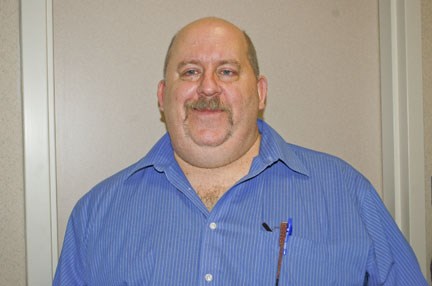The third stop on the Sun Country Health Region's Community Leadership Network program was in Estevan on Nov. 14.
The event attracted eight representatives from surrounding rural municipalities and two towns plus a number of Sun Country team and committee leaders along with CEO Marga Cugnet.
The lead group said a similar session in Weyburn attracted just five people outside of Sun Country's representatives while another session in Bengough brought out 51 people.
The purpose of the visit was to provide an opportunity for community leaders to discuss matters of common interest with Sun Country's administrators and managers and to bring their concerns to the table.
The Estevan meeting in St. Joseph's Hospital auditorium, was chaired by Gary St. Onge one of two Estevan representatives on the appointed board.
Cugnet was joined by Murray Goeres, vice-president of health facilities; Janice Giroux, vice-president of community health; John Knox, vice-president of finance and corporate services; Joanne Helmer, communications co-ordinator and Betty Nault, executive assistant.
Also on board from Sun Country was Mark Barnes, the dementia care project adviser for Sun Country.
Those in attendance also engaged in a wall walk with the leadership team as they explained in graphic form, the progress being made in various sectors such as infection control, fall prevention, absenteeism reductions and other cost-saving measures.
Cugnet opened the session with a power point presentation on seniors' strategy regarding long-term care. She noted that it costs just over $6,400 per month to house and care for a long-term care client while resident fees for the service averaged between $1,025 and $1,951 per month.
Sun Country, she said, has 13 long-term care facilities under its wing in southeast Saskatchewan with the newest one just recently opened in Redvers. She reported that programming in the centres has evolved over the years to the point where they now offer activities for residents as well as continuing education and training for staff. She said a recent personal survey of the facilities revealed that in some centres, meal improvements were warranted to improve nutrition standards, and especially in the smaller centres, the care of clients with dementia creates a challenge not only for staff but also other residents.
"There are a lot of complexities of care when dealing with long-term care residents, and dementia challenges is definitely one of them, especially in the smaller centres where they can't dedicate space for them," Cugnet said.
A new long-term care and hospital facility is under construction in Kipling, she reported, so a renewal program is underway, but with 88 per cent of the long-term care facilities in Saskatchewan considered to be only fair or poor in condition, there is a definite challenge ahead for the province.
Cugnet said there has been definite progress made in terms of patients and clients having more choices regarding their daily routines, but those, in turn, lead to more challenges for staff members who are being asked to provide them, especially if the facility, like the Estevan Regional Nursing Home, was not designed to accommodate Level IV clients, those requiring the most intensive care.
Barnes addressed the development of an education module for behaviour management, which is a big issue for dementia-care workers.
There is a movement toward more efficient care of these patients, he said, beginning with clear assessments and referrals.
"Dementia cases are growing. They now absorb about 1.5 per cent of the population and it will be 2.8 per cent by 2038 and the cost of caring for dementia patients in Saskatchewan is about $572 million (2008 figures) and will be up to $957 million by 2038," he said. About 18,000 Saskatchewan residents currently suffer from some form of advanced dementia.
Barnes noted that a team from the University of Saskatchewan is currently carrying out an extensive study and survey of dementia in rural Saskatchewan and how it can be handled.
Following the presentations and the wall walk in the St. Joseph's Hospital corridor, the attendees returned to the hospital auditorium for a brief question and answer session with the Sun Country administration team.
Giroux pointed out demographics regarding an aging population and government priorities on that topic.
Knox and others discussed reducing costs and travel time using the Telehealth system more effectively, and Cugnet pointed out that absenteeism among the 2,100 employees in the general workforce in Sun Country costs the region approximately $3 million annually.



